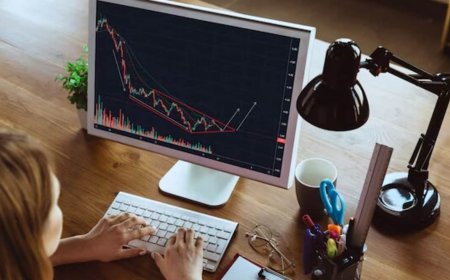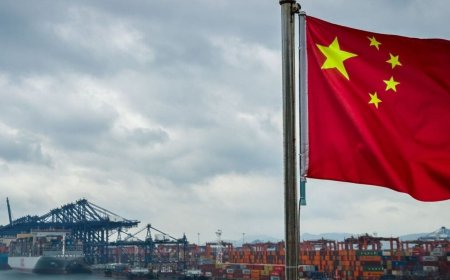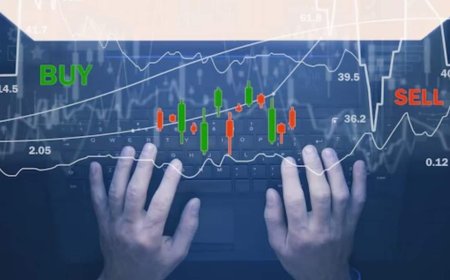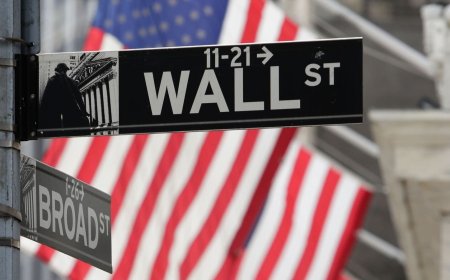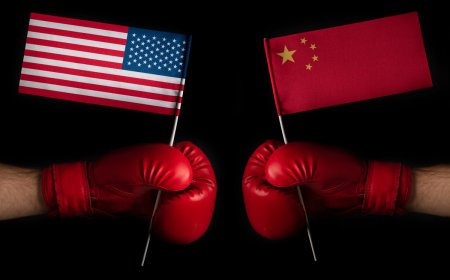South Korean Shares Track Wall Street Gains, But Battery Stocks Weaken
South Korean equities rose on May 20, mirroring Wall Street’s rally. However, battery makers like LG Energy Solution and Samsung SDI declined amid global pressures.

South Korean Shares Track Wall Street Higher; Battery Makers Fall
Seoul | May 20, 2025 — The South Korean stock market opened the week on a cautiously optimistic note, with key benchmark indices edging higher. Mirroring the upbeat sentiment from Wall Street, the KOSPI showed modest gains, driven largely by positive investor sentiment and selective buying in blue-chip technology stocks. However, this upward momentum was tempered by sharp declines in the battery-making sector, with heavyweights like LG Energy Solution and Samsung SDI dragging down the otherwise buoyant index.
Global Cues Influence Local Mood
Markets in South Korea often take their lead from global peers, particularly from the U.S. and China, two of its largest trading partners. Monday’s gains in the KOSPI can largely be attributed to the bullish mood on Wall Street, where optimism around AI, tech earnings, and a relatively stable interest rate environment has spurred risk-on behavior.
Institutional investors in Seoul followed suit, selectively increasing their exposure to high-performing sectors such as semiconductors and fintech. However, geopolitical uncertainties and the shadow of protectionist measures have kept overall sentiment in check.
KOSPI Gains, But Sectoral Divergence Widens
The KOSPI benchmark index ended the day up by 0.34%, closing at 2,612.22. While the rise is modest, it is significant considering ongoing regional and global headwinds. The rise was led primarily by technology giants such as Samsung Electronics and SK Hynix, which benefited from increased chip demand globally and a stabilizing pricing environment.
However, the divergence across sectors was stark. While financials and semiconductors gained, the battery sector saw red across the board. The drop in battery-related stocks was particularly notable, given their past performance and long-term growth outlook.
Battery Stocks Take a Hit
Battery manufacturers, once the darlings of South Korea’s green economy transition, came under significant pressure. LG Energy Solution fell by over 4%, and Samsung SDI closed down by nearly 3.8%. The declines come on the back of several converging factors:
-
Intensified Global Competition: Chinese battery manufacturers have aggressively expanded their market share in recent months, especially with the rise of global EV adoption. The strong debut of China’s leading battery maker in Hong Kong markets also triggered sentiment-driven sell-offs among regional peers.
-
U.S. Tariff Concerns: Renewed concerns around potential tariff escalations by the United States targeting Asian imports, including electric vehicle components and lithium-ion batteries, has created uncertainty. South Korean firms, which rely heavily on exports, face the risk of margin compression in the U.S. market.
-
Dilution Worries: Samsung SDI's plans to raise fresh capital through a discounted share issuance to fund global expansion further dampened investor enthusiasm. The fear of dilution among existing shareholders contributed to the decline in the stock’s valuation.
EV Sector at a Crossroads
South Korea’s battery makers are globally renowned for their technological edge, but the recent developments suggest the sector is entering a period of heightened volatility. The global EV revolution is no longer a novelty; it's mainstream. That means margins are thinner, competition is fiercer, and regulatory risks loom larger.
Market analysts believe that while the long-term fundamentals of the EV battery sector remain intact, short- to medium-term pain is inevitable. Companies may need to adjust strategies, optimize cost structures, and strengthen supply chain resilience to survive this transitional phase.
Currency and Bond Market Moves
The Korean won weakened slightly against the U.S. dollar, reflecting cautious investor sentiment and an uptick in global risk-off trades. Meanwhile, yields on South Korea’s 10-year government bonds dipped slightly, as investors took refuge in safer assets amid concerns about potential trade disruptions and geopolitical tensions in the Asia-Pacific region.
The bond market's behavior also hints at the underlying fragility of risk appetite, despite a general upward movement in equities.
Institutional and Retail Participation
Institutional investors remained net buyers in today’s trade, particularly in large-cap stocks, even as retail investors showed a mixed approach. Some retail traders chose to book profits in previously high-performing sectors like EVs and battery storage, while others ventured cautiously into emerging tech themes such as AI chipmakers and blockchain infrastructure providers.
The retail churn reflects both a nervous optimism and a tactical repositioning in anticipation of earnings updates and macroeconomic policy signals expected later this month.
Economic Indicators & Policy Outlook
On the macro front, the South Korean economy continues to wrestle with a slowing export engine and moderate domestic consumption. However, policymakers at the Bank of Korea have indicated that interest rate stability will be prioritized to ensure a smooth recovery trajectory.
The central bank has refrained from aggressive rate hikes, unlike its Western counterparts, and has instead leaned on liquidity support measures for small businesses and manufacturers. This approach has supported stock valuations, especially in capital-intensive sectors like semiconductors and heavy industries.
Looking Ahead: What to Watch
As markets remain reactive to international headlines, investors will keep an eye on the following developments:
-
Upcoming U.S. and China trade discussions, which may have direct implications for South Korea's export outlook.
-
Policy signals from the Bank of Korea in its next monetary review.
-
Corporate earnings from major players in the battery, auto, and tech sectors.
-
Global commodity prices, particularly lithium and cobalt, which directly affect battery manufacturing margins.
Expert Take: Risk and Opportunity
According to analysts tracking the South Korean markets, the present divergence is both a challenge and an opportunity. While high-growth sectors like battery production are seeing short-term pain, this could be an opportune time for long-term investors to accumulate quality stocks at reasonable valuations.
“The current correction in battery makers is more sentiment-driven than structural,” said a Seoul-based fund manager. “If anything, it allows disciplined investors to enter at better price points.”
That said, near-term caution remains the watchword, especially given the volatile external environment and a packed calendar of macroeconomic events.
The South Korean stock market’s positive momentum, influenced by global cues, reflects the resilience of its broader economy and capital markets. However, the sharp underperformance of battery makers like LG Energy Solution and Samsung SDI reminds us that not all sectors move in sync. Investors need to adopt a sector-specific approach while balancing risk and reward in these dynamic market conditions.
As the world transitions toward sustainable energy and electric mobility, South Korea’s battery sector will remain a critical player. Short-term volatility notwithstanding, the long-term story is far from over — it's merely entering its next chapter.
Disclaimer: This article is intended for informational purposes only and does not constitute financial or investment advice. Please consult your financial advisor before making any investment decisions.
What's Your Reaction?
 Like
0
Like
0
 Dislike
0
Dislike
0
 Love
0
Love
0
 Funny
0
Funny
0
 Angry
0
Angry
0
 Sad
0
Sad
0
 Wow
0
Wow
0




























































